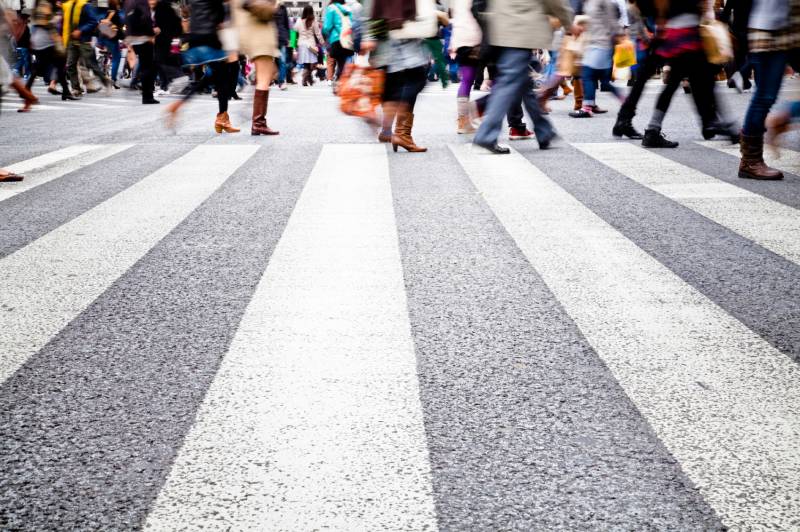Have you ever wondered where the pedestrians have gone? In most urban places one goes, the only people walking are the ones who are rushing across the road, jaywalking like rebels in the shadow of the overhead walkways. It’s no coincidence that you can’t really walk anywhere even if you wanted to: the ways our cities are being urbanised, there’s no place for the pedestrian any more.
It’s odd, really, but then again—when did we ever do the sensible thing? Maybe it’s a third-world thing, maybe it’s our colonial hangover, maybe it’s all cable television’s fault—but we are desperate to be seen as modern. Notice that I haven’t said “be”, because being truly modern is next to impossible for us but at least we know we want the trappings of modernity. We want to pull out the beautiful retro wood window frames at Gymkhana and replace them with boring rectangles of brushed aluminum. We can’t wait for our heritage sites to fall down so we can build overpasses and underpasses and in-the-middle-passes in their stead. We want to have the cell phones, the electric lights, the smoothly-paved five-lane boulevards flanked by ‘tidy’ trees, the wash-and-wear pant-shirts. Not for us are leafy, messy jaamun trees! No twisting, shady gulliyan between close-set buildings for us! No soft cotton kurta pyjamas for us! And because we seem to believe we can’t keep the old but also progress to the new, we throw the baby out with the bathwater. We affix “university” to old colleges that don’t need a badge of newfound prestige. We flatten sidewalks so more motorcycles can pass, and we tacitly tell pedestrians that if you haven’t got wheels, stay home.
It’s a peculiar whitewashing. Does an absence of walking mean people don’t walk so much any more? Maybe they don’t because of the self-fulfilling prophecy of no sidewalk: if there is no safe way to walk in a public space, then you have no choice but to get around in the ‘approved’ way instead. It’s a tremendous pity. Walking, even cycling, connects you to your city in an unexpectedly profound way. You realise how some roads undulate. How the roads with more shady trees are cooler than the desert-like sprawls of blazing concrete other roads tend to be. You notice the cats, the garbage heaps, which road seems like a sweeping machine went by it in the morning and which one hasn’t seen a brush for a week. You form a relationship with your environment the way you never can even inside a rickshaw—as soon as your feet go above the asphalt, you’re gone too.
Walking cities are delightful. People who travel know this. Thumping the pavement with hundreds of other people invariably means that you will take some form of public transport too, that your eyes will meet a stranger’s, you’ll say hello to people you don’t know, comment on the weather, make space for them underneath the huddle of a bus stop when it’s raining. After all—what is a city without its people, and when we go out we connect. And when we connect, we remember we aren’t alone. Our cities alienate us from each other. We lock our car doors quickly when beggars approach at red lights. We shrink inside our chairs at doctor’s clinics and look at the ground when talking to each other. I often run errands and realise with a sudden thump that I didn’t really look at the guard at the door or the cashier. I don’t know who helped me in a store because I wasn’t paying attention to them, from a combination of preoccupation and our desi reluctance to meet anyone’s gaze.
Flattening sidewalks is more heartbreaking than we imagine. Nobody asks us before these kind of developments are made. Who decided pavements aren’t important any more? I can’t walk down the road to the ATM without being honked at, because the road belongs to people in cars and on motorcycles, not to me, on foot. Do I walk in a green belt, squelching in mud or clambering over mounds of dirt and garbage? Where do I go, and more importantly, how do I go? When one is in cities where people walk a lot, there’s an overarching sense of freedom. You can leave the house and just…well, go. There’s no fuss about who will drive, whether the gate is locked for the night, who has taken the car without telling anyone. Maybe we would be less policed by others if we had more independent ways of getting around. But we would definitely be happier, healthier citizens if only we could walk more.






